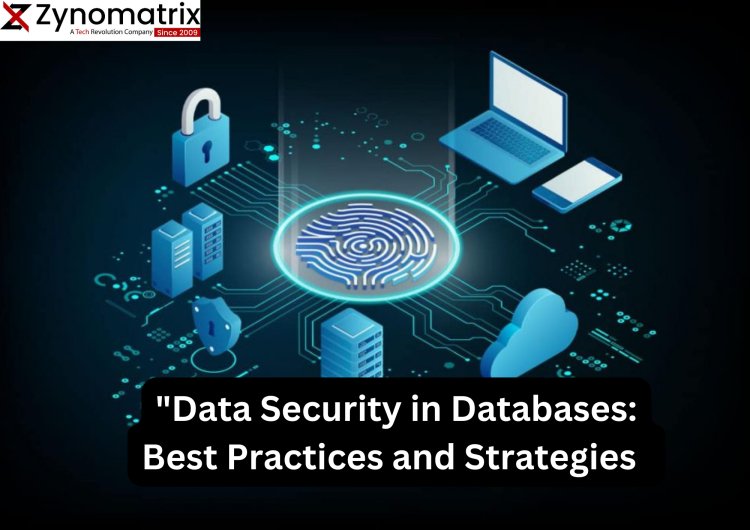"Data Security in Databases: Best Practices and Strategies"
"Data Security in Databases: Best Practices and Strategies" is an illuminating exploration of the critical domain of data security within databases. In today's landscape of increasing cyber threats and data breaches, safeguarding sensitive information is paramount. This comprehensive blog post delves into the fundamental principles and methodologies that ensure data integrity, confidentiality, and availability within database systems.

Introduction
In an era where data breaches and cyberattacks are becoming increasingly prevalent, the importance of data security cannot be overstated. As organizations rely more heavily on digital systems to store and manage their sensitive information, the need to safeguard this data has become paramount. Among these digital repositories, databases stand at the forefront – housing a wealth of valuable and confidential data that is coveted by malicious actors. This blog post delves into the critical realm of data security in databases, exploring the best practices and strategies that organizations can adopt to fortify their defenses and protect their most prized digital assets.
Data Security in Databases: Best Practices and Strategies
In an era where data breaches and cyberattacks are becoming increasingly prevalent, ensuring the security of your data has never been more important. Databases, which house valuable and sensitive information, are prime targets for malicious actors. This blog post explores essential best practices and strategies for fortifying data security within databases, helping you safeguard your organization's most valuable digital assets.
Understanding Data Security
Data security encompasses a range of measures designed to protect data from unauthorized access, alteration, or destruction. Within the realm of databases, this involves safeguarding data both at rest and in transit. By implementing robust data security practices, organizations can mitigate risks and maintain the confidentiality, integrity, and availability of their data.
Best Practices for Database Security
-
Access Control: Implement strong access controls to restrict database access to authorized personnel only. Utilize role-based access control (RBAC) to assign specific permissions based on job roles and responsibilities.
-
Encryption: Encrypt data both at rest and in transit. Utilize encryption algorithms to render data unreadable without the appropriate decryption keys, even if a breach occurs.
-
Regular Auditing and Monitoring: Implement continuous monitoring and auditing of database activities. Detect unusual or suspicious behavior promptly to respond to potential security threats effectively.
-
Patch Management: Keep your database management system up to date by applying security patches and updates. Vulnerabilities in outdated systems can be exploited by attackers.
-
Strong Authentication: Enforce strong authentication methods such as two-factor authentication (2FA) to enhance the security of user logins.
Strategies for Enhancing Database Security
-
Database Firewalls: Deploy database firewalls to filter incoming and outgoing traffic, protecting against SQL injection attacks and unauthorized access attempts.
-
Data Masking and Redaction: Implement data masking to replace sensitive information with fictional data in non-production environments. Redact sensitive information in query results to limit exposure.
-
Database Activity Monitoring (DAM): Utilize DAM solutions to track and analyze database activities in real time. This helps identify unusual patterns and potential threats.
-
Regular Backups: Perform regular backups of your databases and store them securely offsite. In the event of a breach or data loss, backups can aid in data recovery.
Challenges and Considerations
While implementing robust data security practices is crucial, there are challenges to navigate. Balancing security with user convenience, ensuring compliance with regulations like GDPR or HIPAA, and keeping up with evolving threats are ongoing considerations.
What's Your Reaction?





















